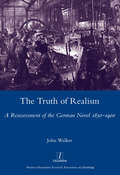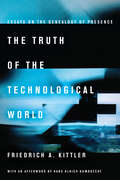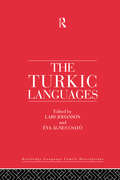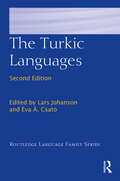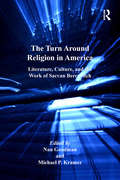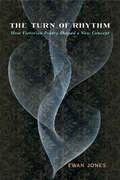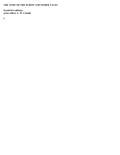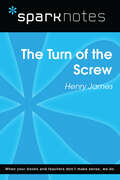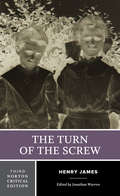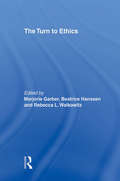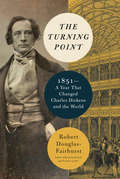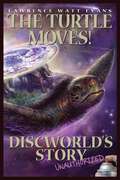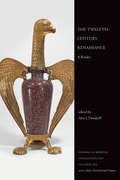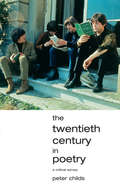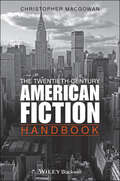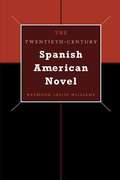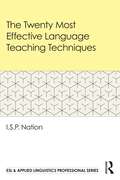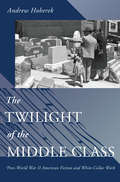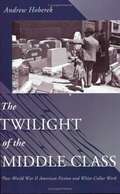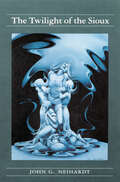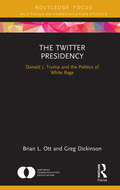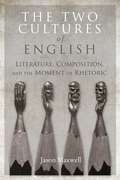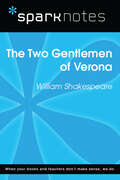- Table View
- List View
The Truth of Realism: A Reassessment of the German Novel 1830-1900
by John Walker"In his new book, Walker offers a radical reassessment of the German realist novel in the nineteenth century. Especially in the English- speaking world, German narrative realism has persistently been interpreted as the literary expression of an ideology of the aesthetic. The German realist novel is alleged to reflect philosophical idealism: to reject the prose of modern society in favour of the poetry of the inner aesthetic life. This book challenges that received view. Walker argues that German narrative realism should be read not only in relation to, but in crucial respects against, the dominant philosophical idiom of nineteenth century Germany. German narrative realism often functions as a critique of the idea and ideology of inwardness in nineteenth century German culture. To understand this, the author argues, we must reread German realist novels above all as narratives, not as the supposed reflection of philosophical categories. The core of the book is therefore the close reading of eight of the best known realist novels in German by Keller, Raabe and Fontane. This reading shows how the German realist novel, far from transposing the assumptions of aesthetic idealism into narrative form, exposes the real consequences of those assumptions in the culture and society of its time. John Walker is Head of the School of Languages, Linguistics and Culture at Birkbeck, University of London."
The Truth of the Technological World: Essays on the Genealogy of Presence
by translated by Erik Butler Friedrich A. KittlerFriedrich Kittler (1943-2011) combined the study of literature, cinema, technology, and philosophy in a manner sufficiently novel to be recognized as a new field of academic endeavor in his native Germany. "Media studies," as Kittler conceived it, meant reflecting on how books operate as films, poetry as computer science, and music as military equipment. This volume collects writings from all stages of the author's prolific career. Exemplary essays illustrate how matters of form and inscription make heterogeneous source material (e. g. , literary classics and computer design) interchangeable on the level of function--with far-reaching consequences for our understanding of the humanities and the "hard sciences. " Rich in counterintuitive propositions, sly humor, and vast erudition, Kittler's work both challenges the assumptions of positivistic cultural history and exposes the over-abstraction and language games of philosophers such as Heidegger and Derrida. The twenty-three pieces gathered here document the intellectual itinerary of one of the most original thinkers in recent times--sometimes baffling, often controversial, and always stimulating.
The Turkic Languages (Routledge Language Family Series)
by Lars Johanson Éva Ágnes JohansonThe Turkic Languages examines the modern languages within this wide-ranging language family and gives an historical overview of their development.The first part covers generalities, providing an introduction to the grammatical traditions, subgrouping and writing systems of this language family.The latter part of the book focuses on descriptions of the individual languages themselves. Each language description gives an overview of the language followed by detail on phonology, morphology, syntax, lexis and dialects. The language chapters are similarly structured to enable the reader to access and compare information easily.Each chapter represents a self-contained article written by a recognised expert in the field. Suggestions are made for the most useful sources of further reading and the work is comprehensively indexed.
The Turkic Languages (Routledge Language Family Series)
by Lars Johanson Éva Á. CsatóThe Turkic languages are spoken today in a vast geographical area stretching from southern Iran to the Arctic Ocean and from the Balkans to the great wall of China. There are currently 20 literary languages in the group, the most important among them being Turkish with over 70 million speakers; other major languages covered include Azeri, Bashkir, Chuvash, Gagauz, Karakalpak, Kazakh, Kirghiz, Noghay, Tatar, Turkmen, Uyghur, Uzbek, Yakut, Yellow Uyghur and languages of Iran and South Siberia. The Turkic Languages is a reference book which brings together detailed discussions of the historical development and specialized linguistic structures and features of the languages in the Turkic family. Seen from a linguistic typology point of view, Turkic languages are particularly interesting because of their astonishing morphosyntactic regularity, their vast geographical distribution, and their great stability over time. This volume builds upon a work which has already become a defining classic of Turkic language study. The present, thoroughly revised edition updates and augments those authoritative accounts and reflects recent and ongoing developments in the languages themselves, as well as our further enhanced understanding of the relations and patterns of influence between them. The result is the fruit of decades-long experience in the teaching of the Turkic languages, their philology and literature, and also of a wealth of new insights into the linguistic phenomena and cultural interactions defining their development and use, both historically and in the present day. Each chapter combines modern linguistic analysis with traditional historical linguistics; a uniform structure allows for easy typological comparison between the individual languages. Written by an international team of experts, The Turkic Languages will be invaluable to students and researchers within linguistics, Turcology, and Near Eastern and Oriental Studies.
The Turn Around Religion in America: Literature, Culture, and the Work of Sacvan Bercovitch
by Michael P. KramerPlaying on the frequently used metaphors of the 'turn toward' or 'turn back' in scholarship on religion, The Turn Around Religion in America offers a model of religion that moves in a reciprocal relationship between these two poles. In particular, this volume dedicates itself to a reading of religion and of religious meaning that cannot be reduced to history or ideology on the one hand or to truth or spirit on the other, but is rather the product of the constant play between the historical particulars that manifest beliefs and the beliefs that take shape through them. Taking as their point of departure the foundational scholarship of Sacvan Bercovitch, the contributors locate the universal in the ongoing and particularized attempts of American authors from the seventeenth century forward to get it - whatever that 'it' might be - right. Examining authors as diverse as Pietro di Donato, Herman Melville, Miguel Algarin, Edward Taylor, Mark Twain, Robert Keayne, Nathaniel Hawthorne, Paule Marshall, Stephen Crane, Ralph Waldo Emerson, and Joseph B. Soloveitchik, among many others-and a host of genres, from novels and poetry to sermons, philosophy, history, journalism, photography, theater, and cinema-the essays call for a discussion of religion's powers that does not seek to explain them as much as put them into conversation with each other. Central to this project is Bercovitch's emphasis on the rhetoric, ritual, typology, and symbology of religion and his recognition that with each aesthetic enactment of religion's power, we learn something new.
The Turn of Rhythm: How Victorian Poetry Shaped a New Concept (Victorian Literature and Culture Series)
by Ewan JonesIncredibly, until the cusp of the nineteenth century, the word rhythm was not widely used. It likewise had no cultural connotations. This book traces the complex and overlooked way in which anglophone culture "got rhythm," concentrating on the pivotal role that poetry played in that narrative.The Turn of Rhythm offers the first book-length study of this distinctively nineteenth-century phenomenon. Ewan Jones uncovers how several nascent discursive fields—ranging from speech therapy to idealist philosophy to anthropology and the thermal sciences—perceived a growing need to conceptualize rhythm, and he demonstrates the centrality of poetry to that development. Poetry actuated states and processes in a manner that more discursive or propositional thinking could not.Drawing on the work of Robert Browning, George Eliot, Alice Meynell and A. C. Swinburne, as well as on the philosophy, science, and anthropology of the day, Jones traces the history of the concept of rhythm with the hope of enabling it to perform new work in the ongoing education of our bodies and minds.
The Turn of The Screw and Other Tales (Broadview Editions Ser.)
by Henry JamesA long career in writing fiction allows an author many opportunities to change style and subjects; in a career of more than 50 years, Henry James remained ever alert for new combinations of characters, settings, and plots that would allow him to expand the possibilities of narrative fiction. From his early short stories and novels that often focused on encounters between Americans and Europeans to his complex explorations of consciousness and perspective, James consistently examined issues of great moral heft in his works.
The Turn of the Screw (SparkNotes Literature Guide Series)
by Henry James SparkNotesThe Turn of the Screw (SparkNotes Literature Guide) by Henry James Making the reading experience fun! Created by Harvard students for students everywhere, SparkNotes is a new breed of study guide: smarter, better, faster. Geared to what today's students need to know, SparkNotes provides: *Chapter-by-chapter analysis *Explanations of key themes, motifs, and symbols *A review quiz and essay topicsLively and accessible, these guides are perfect for late-night studying and writing papers
The Turn of the Screw: A Norton Critical Edition (Norton Critical Editions #0)
by Henry James“This admirable new and expanded Norton Critical Edition, with its judiciously selected and expertly curated secondary materials, both historical and critical, and accompanied by Jonathan Warren's excellent introduction, is an invaluable resource for students, instructors, and scholars.” —Sheila Teahan, Michigan State University This Norton Critical Edition includes: The New York Edition text of the novel—the one that had James’s final authority—newly and fully annotated by Jonathan Warren. A full introduction, compositional history, and textual notes by Jonathan Warren. Revised and expanded contextual materials, topically organized to promote classroom discussion: “James, the Ghost Story, and the Supernatural,” “James on The Turn of the Screw,” “Other Possible Sources for The Turn of the Screw,” and, new to the Third Edition, “Adaptations and Illustrations.” Thirty-two critical assessments—from early reactions to the present day—sixteen of them new to the Third Edition. A chronology and suggestions for further reading. About the Series Read by more than 12 million students over fifty-five years, Norton Critical Editions set the standard for apparatus that is right for undergraduate readers. The three-part format—annotated text, contexts, and criticism—helps students to better understand, analyze, and appreciate the literature, while opening a wide range of teaching possibilities for instructors. Whether in print or in digital format, Norton Critical Editions provide all the resources students need.
The Turn to Ethics: A Book Series From The Center For Literacy And Cultural Studies At Harvard: Turn To Ethics (CultureWork: A Book Series from the Center for Literacy and Cultural Studies at Harvard)
by Marjorie Garber Rebecca L. Walkowitz Beatrice HanssenWhat kind of turn is the turn to ethics? A Right turn? A Left turn? A wrong turn? A U-turn? Ethics is back in literary studies, philosophy, and political theory. The philosophers, political theorists, literary critics and physician whose essays are collected here bring the particularities of their disciplines and training to a vital complex of questions.
The Turning Point: 1851--A Year That Changed Charles Dickens and the World
by Robert Douglas-FairhurstA major new biography that takes an unusual and illuminating approach to the great writer—immersing us in one year of his life—from the award-winning author of Becoming Dickens and The Story of Alice.The year is 1851. It's a time of radical change in Britain, when industrial miracles and artistic innovations rub shoulders with political unrest, poverty, and disease. It is also a turbulent year in the private life of Charles Dickens, as he copes with a double bereavement and early signs that his marriage is falling apart. But this formative year will become perhaps the greatest turning point in Dickens's career, as he embraces his calling as a chronicler of ordinary people's lives and develops a new form of writing that will reveal just how interconnected the world is becoming. The Turning Point transports us into the foggy streets of Dickens's London, closely following the twists and turns of a year that would come to define him and forever alter Britain's relationship with the world. Fully illustrated, and brimming with fascinating details about the larger-than-life man who wrote Bleak House, this is the closest look yet at one of the greatest literary personalities ever to have lived.
The Turtle Moves!: Discworld's Story Unauthorized
by Lawrence Watt-EvansAfter growing from humble beginnings as a Sword & Sorcery parody to more than 30 volumes of wit, wisdom, and whimsy, the Discworld series has become a phenomenon unlike any other. Now, in The Turtle Moves!, Lawrence Watt-Evans presents a story-by-story history of Discworld's evolution as well as essays on Pratchett's place in literary canon, the nature of the Disc itself, and the causes and results of the Discworld phenomenon, all refreshingly free of literary jargon littered with informative footnotes. Part breezy reference guide, part droll commentary, The Turtle Moves! will enlighten and entertain every Pratchett reader, from the casual browser to the most devout of Discworld's fans.
The Twelfth-Century Renaissance: A Reader
by Alex J. NovikoffThe twelfth century was a time of new ideas and creative innovation spurred on by patron-monarchs like King Henry II and Eleanor of Aquitaine, poets like Marie de France and Chrétien de Troyes, lovers and intellectuals like Abelard and Heloise, and religious thinkers like Bernard of Clairvaux and Hildegard of Bingen. In his thoughtful introduction, Novikoff explores the term "twelfth-century renaissance" and whether or not it should be applied to a range of thinkers with differing outlooks and attitudes. With reference to this ongoing historiographical debate, Novikoff embraces the harmony of disharmonies and allows the authors of the twelfth century to define the period for themselves. He situates classic works against a broad backdrop of other sources, many appearing in translation for the first time, in order to highlight the period's diverse currents of thought. Sixteen black-and-white images are included.
The Twentieth Century in Poetry
by Peter ChildsUntil now, most teaching has focused on the novel as the most useful way of raising issues of gender, ethnicity, theory, nationality, politics and social class. In The Twentieth Century in Poetry Peter Childs places literature in a wider social context and demonstrates that all poetry is historically produced and consumed and is part of our understanding of society and identity. This student-friendly critical survey includes chapters on: * the Georgians * First World War poetry * Eliot * Yeats * the thirties * post-war poetry * contemporary anthologies * women's poetry * Northern Irish and black British poets It builds a narrative not of poetry in the twentieth century, but of the twentieth century in poetry.
The Twentieth-Century American Fiction Handbook (Wiley Blackwell Literature Handbooks #27)
by Christopher MacGowanThis student-friendly handbook provides an engaging overview of American fiction over the twentieth century, with entries on the important historical contexts and central issues, as well as the major texts and writers. Provides extensive coverage of short stories and short story writers as well as novels and novelists Discusses the cultural contexts and issues that shape the texts and their reputations Wide-ranging in scope, including science fiction and recent Native American writing Featured writers range from Henry James and Theodore Dresier to Toni Morrison, Don DeLillo, and Sherman Alexie Ideal student accompaniment to courses in Twentieth-Century American Literature or Fiction
The Twentieth-Century Spanish American Novel
by Raymond Leslie WilliamsSpanish American novels of the Boom period (1962-1967) attracted a world readership to Latin American literature, but Latin American writers had already been engaging in the modernist experiments of their North American and European counterparts since the turn of the twentieth century. Indeed, the desire to be "modern" is a constant preoccupation in twentieth-century Spanish American literature and thus a very useful lens through which to view the century's novels.<P><P>In this pathfinding study, Raymond L. Williams offers the first complete analytical and critical overview of the Spanish American novel throughout the entire twentieth century. Using the desire to be modern as his organizing principle, he divides the century's novels into five periods and discusses the differing forms that "the modern" took in each era. For each period, Williams begins with a broad overview of many novels, literary contexts, and some cultural debates, followed by new readings of both canonical and significant non-canonical novels. A special feature of this book is its emphasis on women writers and other previously ignored and/or marginalized authors, including experimental and gay writers. Williams also clarifies the legacy of the Boom, the Postboom, and the Postmodern as he introduces new writers and new novelistic trends of the 1990s.
The Twenty Most Effective Language Teaching Techniques (ISSN)
by I.S.P. NationFrom leading scholar and applied linguist Paul Nation, this book describes and explains the 20 most effective and efficient language teaching techniques and why they work. Backed by decades of research and expertise, Nation examines the principles of learning connected to these techniques, as well as the factors affecting their choice and usage.These techniques are organized around the four skills of listening, speaking, reading, and writing. For each skill, there is an opportunity for learning through meaning-focused use, an opportunity for learning through deliberate study, and a window for fluency development through working with easy material. Each technique is described and analyzed to demonstrate its learning goals and the principles of learning in use.In demonstrating key techniques and methods for language learning, this book is particularly useful for pre-service teachers and students in applied linguistics, TESOL, and language teaching. Each chapter also has a substantial list of research topics for projects or theses.
The Twilight of the Middle Class: Post-World War II American Fiction and White-Collar Work
by Andrew HoberekIn The Twilight of the Middle Class, Andrew Hoberek challenges the commonly held notion that post-World War II American fiction eschewed the economic for the psychological or the spiritual. Reading works by Ayn Rand, Ralph Ellison, Saul Bellow, Phillip Roth, Flannery O'Connor, Thomas Pynchon, Don DeLillo, and others, he shows how both the form and content of postwar fiction responded to the transformation of the American middle class from small property owners to white-collar employees. In the process, he produces "compelling new accounts of identity politics and postmodernism that will be of interest to anyone who reads or teaches contemporary fiction. Hoberek argues that despite the financial gains and job security enjoyed by the postwar middle class, the transition to white-collar employment paved the way for its current precarious state in a country marked by increasingly deep class divisions. Postwar fiction provided the middle class with various imaginative substitutes for its former property-owning independence, substitutes that since then have not only allowed but abetted this class's downward mobility. To read this fiction in the light of the middle-class experience is thus not only to restore the severed connections between literary and economic "history in the second half of the twentieth "century, but to explore the roots of the contemporary crisis of the middle class.
The Twilight of the Middle Class: Post-World War II American Fiction and White-collar Work
by Andrew HoberekIn The Twilight of the Middle Class, Andrew Hoberek challenges the commonly held notion that post-World War II American fiction eschewed the economic for the psychological or the spiritual. Reading works by Ayn Rand, Ralph Ellison, Saul Bellow, Phillip Roth, Flannery O'Connor, Thomas Pynchon, Don DeLillo, and others, he shows how both the form and content of postwar fiction responded to the transformation of the American middle class from small property owners to white-collar employees. In the process, he produces "compelling new accounts of identity politics and postmodernism that will be of interest to anyone who reads or teaches contemporary fiction. Hoberek argues that despite the financial gains and job security enjoyed by the postwar middle class, the transition to white-collar employment paved the way for its current precarious state in a country marked by increasingly deep class divisions. Postwar fiction provided the middle class with various imaginative substitutes for its former property-owning independence, substitutes that since then have not only allowed but abetted this class's downward mobility. To read this fiction in the light of the middle-class experience is thus not only to restore the severed connections between literary and economic "history in the second half of the twentieth "century, but to explore the roots of the contemporary crisis of the middle class.
The Twilight of the Sioux (Volume II of A Cycle of the West)
by John G. NeihardtThe second volume of A Cycle of the West, dealing with the tragic defeat of the Plains Indians, includes The Song of the Indian Wars (1925) and The Song of the Messiah (1935). The former tells of "the period of migration and the last great fight for the bison pastures between the invading white race and the Sioux, the Cheyenne, and the Arapahoe," while the latter concerns "the conquered people and the worldly end of the last great dream." It closes with the battle of Wounded Knee, ending Indian resistance on the Plains.
The Twitter Presidency: Donald J. Trump and the Politics of White Rage (NCA Focus on Communication Studies)
by Brian L. Ott Greg DickinsonThe Twitter Presidency explores the rhetorical style of President Donald J. Trump, attending to both his general manner of speaking as well as to his preferred modality. Trump’s manner, the authors argue, reflects an aesthetics of white rage, and it is rooted in authoritarianism, narcissism, and demagoguery. His preferred modality of speaking, namely through Twitter, effectively channels and transmits the affective dimensions of white rage by taking advantage of the platform’s defining characteristics, which include simplicity, impulsivity, and incivility. There is, then, a structural homology between Trump’s general communication practices and the specific platform (Twitter) he uses to communicate with his base. This commonality between communication practices and communication platform (manner and modality) struck a powerful emotive chord with his followers, who feel aggrieved at the decentering of white masculinity. In addition to charting the defining characteristics of Trump’s discourse, The Twitter Presidency exposes how Trump’s rhetorical style threatens democratic norms, principles, and institutions.
The Two Cultures of English: Literature, Composition, and the Moment of Rhetoric
by Jason MaxwellThe Two Cultures of English examines the academic discipline of English in the final decades of the twentieth century and the first years of the new millennium. During this period, longstanding organizational patterns within the discipline were disrupted. With the introduction of French theory into the American academy in the 1960s and 1970s, both literary studies and composition studies experienced a significant reorientation.The introduction of theory into English studies not only intensified existing tensions between those in literature and those in composition but also produced commonalities among colleagues that had not previously existed. As a result, the various fields within English began to share an increasing number of investments at the same time that institutional conflicts between them became more intense than ever before.Through careful reconsiderations of some of the key figures who shaped and were shaped by this new landscape—including Michel Foucault, Kenneth Burke, Paul de Man, Fredric Jameson, James Berlin, Susan Miller, John Guillory, and Bruno Latour—the book offers a more comprehensive map of the discipline than is usually understood from the perspective of either literature or composition alone.Possessing a clear view of the entire discipline is essential today as the contemporary corporate university pushes English studies to abandon its liberal arts tradition and embrace a more vocational curriculum. This book provides important conceptual tools for responding to and resisting in this environment.
The Two Gentlemen of Verona (SparkNotes Literature Guide Series)
by SparkNotesThe Two Gentlemen of Verona (SparkNotes Literature Guide) by William Shakespeare Making the reading experience fun! Created by Harvard students for students everywhere, SparkNotes is a new breed of study guide: smarter, better, faster. Geared to what today's students need to know, SparkNotes provides: *Chapter-by-chapter analysis *Explanations of key themes, motifs, and symbols *A review quiz and essay topicsLively and accessible, these guides are perfect for late-night studying and writing papers
